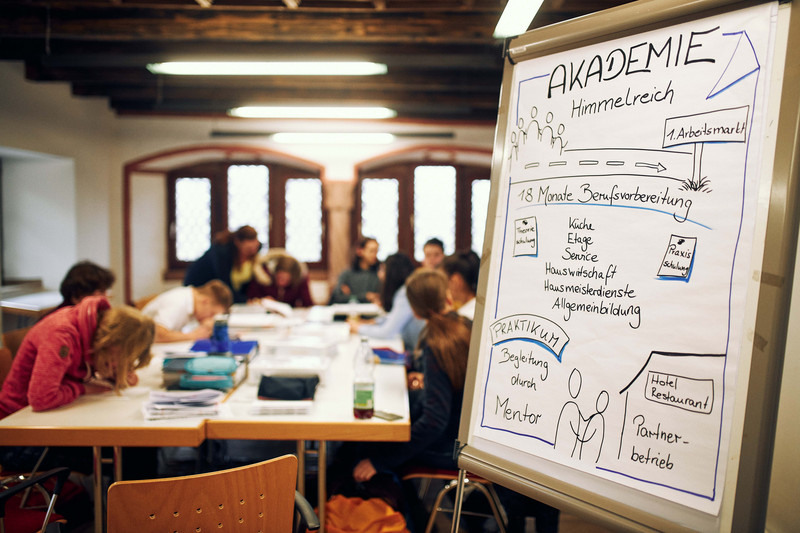Hofgut Himmelreich: Making Adult Education inclusive

Hofgut Himmelreich in Kirchzarten in the Black Forest is one of the first inclusive companies in Germany where people with and without disabilities have been working side by side since 2003. The initiative sees opportunity in diversity and individuality and promotes respectful cooperation. Nearly 50 employees, more than half of whom have assistance needs, run a hotel and restaurant as well as the Himmelreich Academy, which provides vocational training, continuing education and counselling. Those responsible want to create encounters on equal footing in this field as well, where people with the most diverse backgrounds can learn and work together. New adult education approaches are set in particular by the “BaLIE – Barrierefreies Lernen in der Erwachsenenbildung” (barrier-free learning in adult education) project funded by SAGST. With its barrier-free digital learning modules, the adult education centre’s existing adult teaching qualification course “Erwachsenenpädagogischen Qualifikation (EPQ)” is tailored to meet the needs of people with impairments so that they can become active as course leaders in the future.
“It’s about time that people with assistance needs are recognised as providers of education in equal measure”, says Jens Maurer, who is responsible for the project at the Foundation. “Not only does this boost their self-confidence, but it also promotes inclusive processes in vocational training – something that benefits everyone involved.” The new offer allows people with impaired vision and hearing as well as people with physical, psychological or mental handicaps to contribute their individual strengths as course instructors in the future. Moreover, the Himmelreich Academy wants to work with adult education centres as well as the Ecumenical Adult Education Centre in Freiburg to develop a barrier-free education network on a supra-regional level and to raise awareness of the requirements of an accessible educational landscape. For example, the newly designed EPQ modules form a valuable foundation that can be used not only in Baden-Württemberg but also nationwide for the further development of inclusive adult education.
